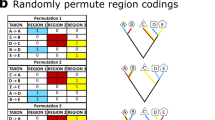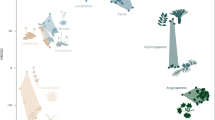Abstract
IN a recent review (NATŪRE, Sept. 6, p. 341), Prof. Elliot Smith reproves at some length an anonymous group of contemporary biologists whose attitude towards morphology is one of ill-concealed contempt. Escaping the discipline which alone attends the laborious drudgery of morphological research, they pour contempt on that field of biology which, in the past, has yielded all our richest fruits. Few biologists will read Prof. Elliot Smith's remarks unmoved. Some will learn, for the first time, that there is a race of upstarts—presumably experimental biologists—who not only ignore, but also despise, the foundations of their own beliefs. Others—perhaps no insignificant minority—will learn with dismay of the great gulf which protects the true morphologist from the taint of experimental corruption.
This is a preview of subscription content, access via your institution
Access options
Subscribe to this journal
Receive 51 print issues and online access
$199.00 per year
only $3.90 per issue
Buy this article
- Purchase on Springer Link
- Instant access to full article PDF
Prices may be subject to local taxes which are calculated during checkout
Similar content being viewed by others
Author information
Authors and Affiliations
Rights and permissions
About this article
Cite this article
GRAY, J. Depreciated Morphology. Nature 126, 567–568 (1930). https://doi.org/10.1038/126567b0
Issue Date:
DOI: https://doi.org/10.1038/126567b0
Comments
By submitting a comment you agree to abide by our Terms and Community Guidelines. If you find something abusive or that does not comply with our terms or guidelines please flag it as inappropriate.



